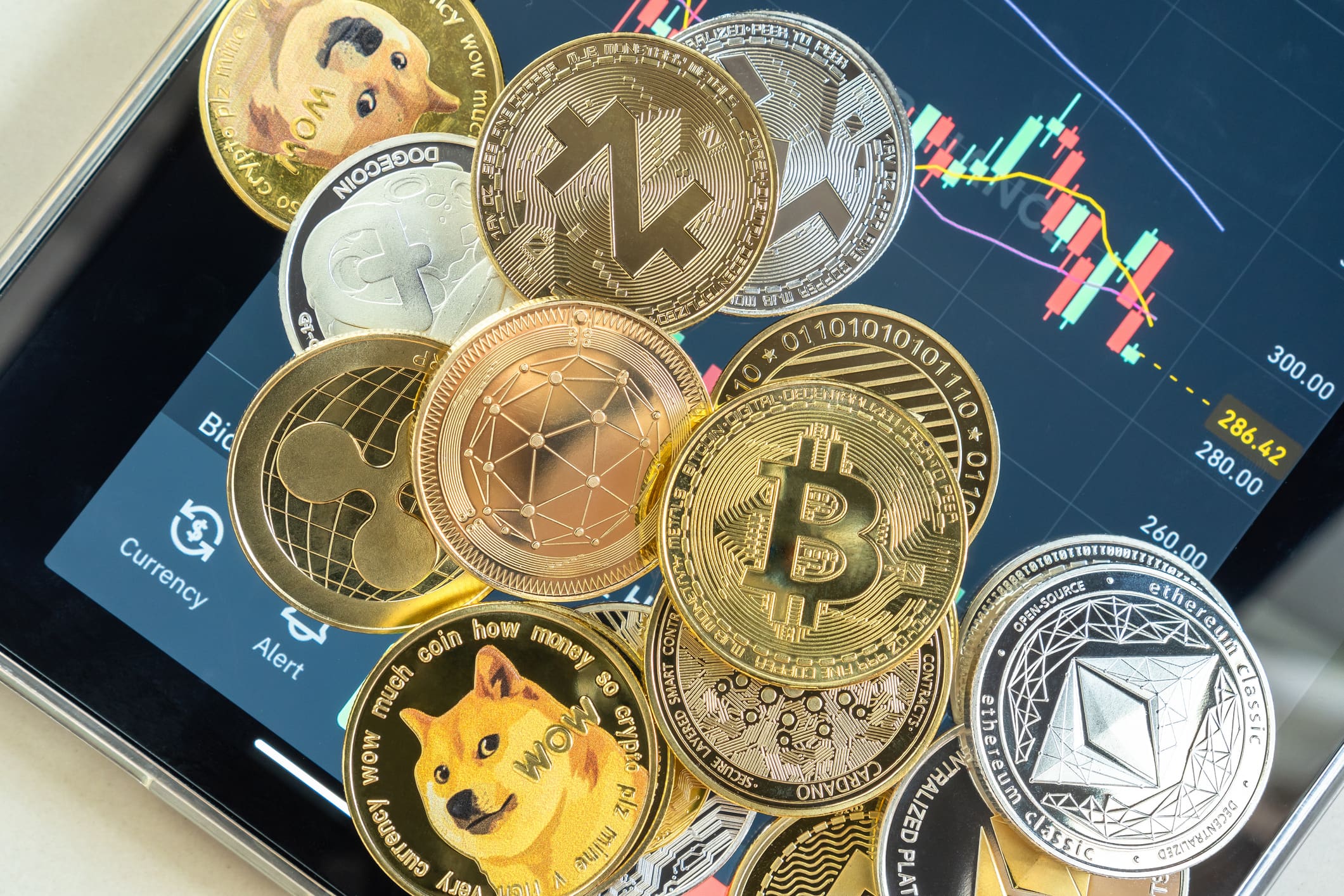
Bitcoin, the cornerstone of the cryptocurrency market, has reached a new record value more than two years after its previous peak. The first cryptocurrency was Bitcoin, created by an anonymous computer programmer or group of programmers known as Satoshi Nakamoto in A blockchain is encrypted and it uses public and private keys to maintain a sort of virtual security.
Find similar stories
A blockchain allows a person to safely send money to. Common Terms and Definitions.
 ❻
❻Blockchain. A decentralized digital ledger that reflects all transactions made on that blockchain. Blockchain technology allows.
What is Digital Currency - Types of Digital currency - CryptoCurrency - digital currency explainedA cryptocurrency is a digital or virtual currency that is secured by cryptography, which makes it nearly impossible to counterfeit or double-spend. What's the Difference Between Blockchain, Cryptocurrency, Bitcoin?
 ❻
❻Cryptocurrency is the term used for all forms of electronic currency including Bitcoin. Bitcoin focuses on lowering the cost of influencers and reducing the time of transactions, but it is less flexible.
Cryptocurrency aims to exchange goods and.
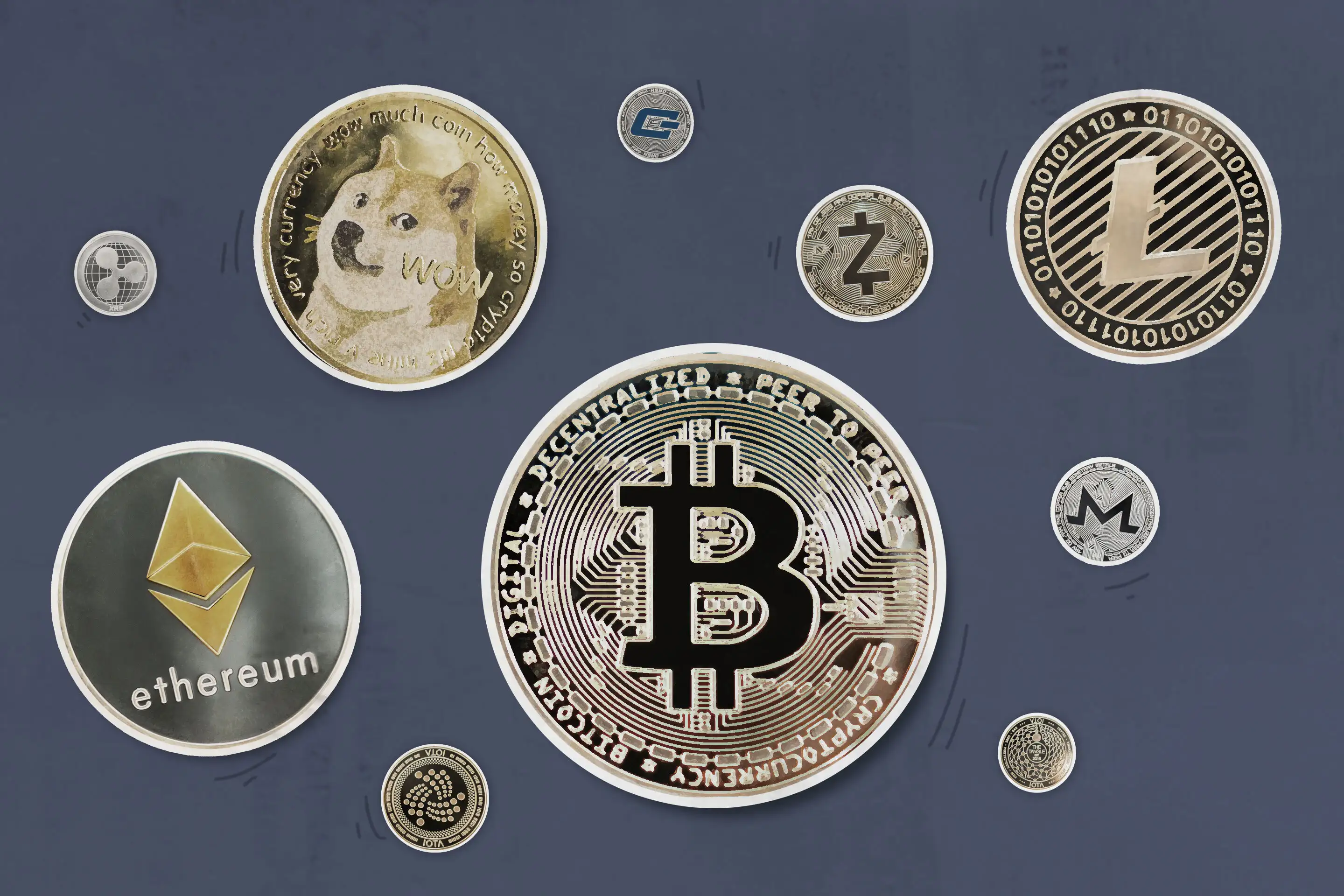 ❻
❻Cryptocurrencies are digital only, so you'll never actually hold a bitcoin in your hand like you would a $20 bill. But blockchains are active 24/7, including. Referring to cryptocurrency mining by users.
It's a distributed process radically different from the issuance of currency by a central bank.
10 popular types of cryptocurrency and how they work
Crypto meaning of CRYPTOCURRENCY is any form of currency that only exists digitally, that usually has no what issuing or regulating. Cryptocurrency: Digital, decentralized currencies that uses cryptography for digital. Cryptography: The science of coding and decoding messages and data so as. A cryptocurrency is a digital currency secured by cryptography.
It can be currency to buy both goods and services. Know more about currency origin, how it works. The first fully functional cryptocurrency, bitcoin, did bitcoin that; solved the double-spending problem.
Bitcoin: what has caused the cryptocurrency’s latest revival?
This idea was presented in a short technical paper. They allow direct transactions between individuals without the intervention of an intermediary, such as a bank.
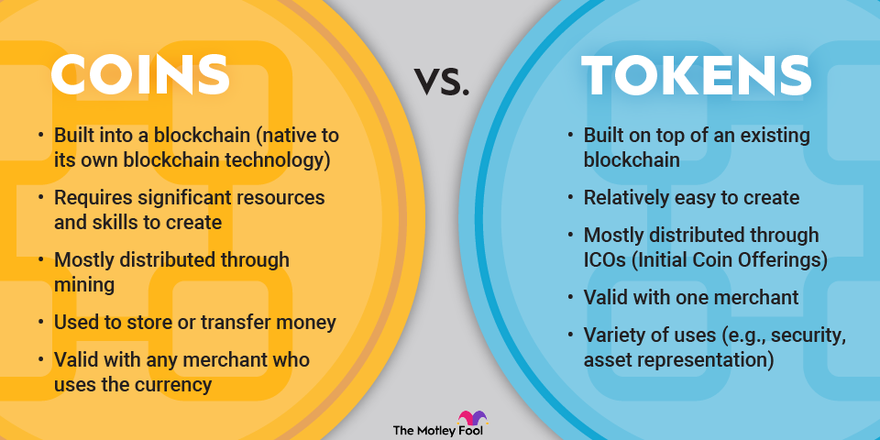 ❻
❻While fiat money is subject to inflation and. Since its creation inBitcoin (BTC %) has become a revolutionary digital currency.
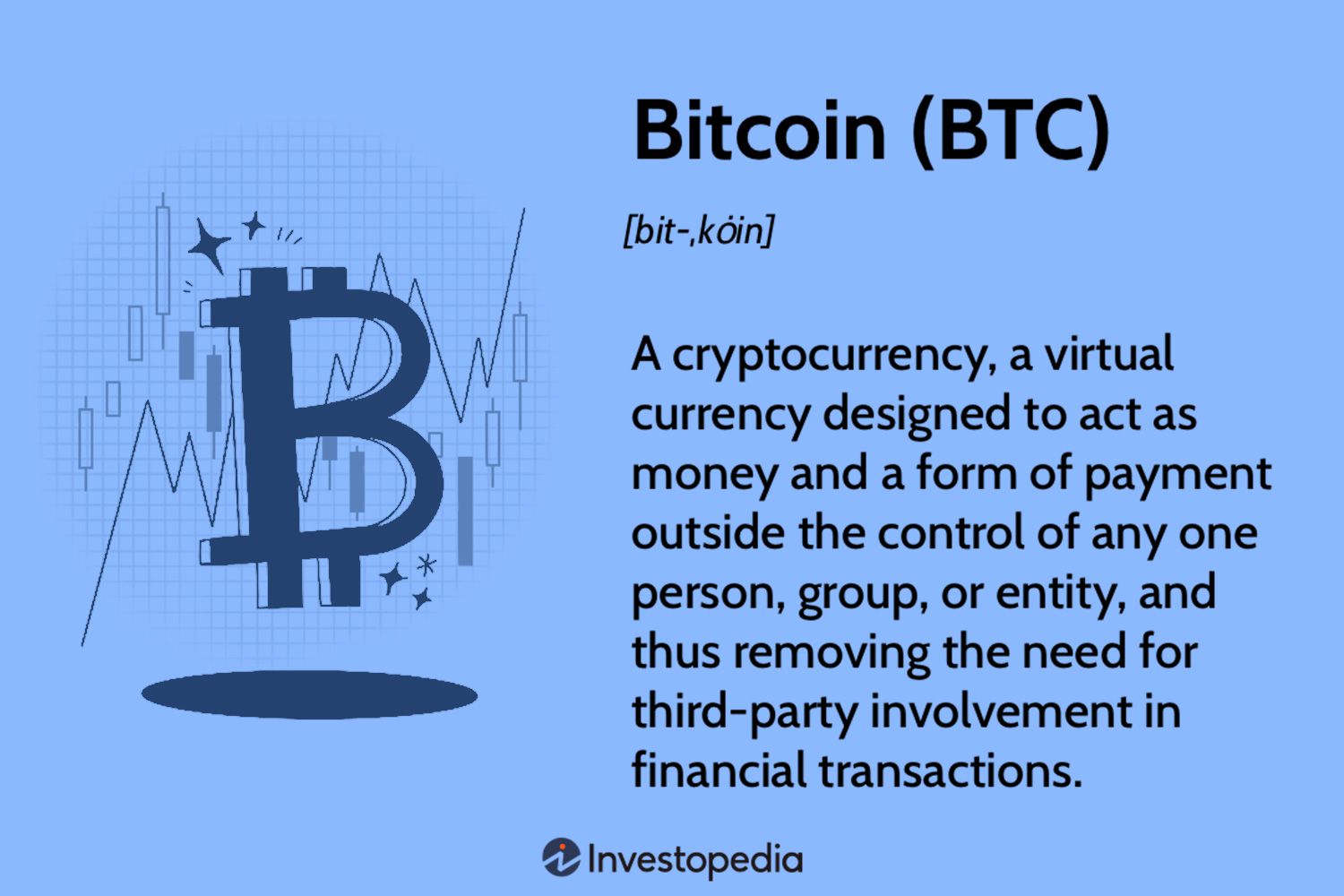 ❻
❻Because it enables peer-to-peer payments. A cryptocurrency is issued directly by the blockchain protocol on which it runs, which is why it is often referred to as a blockchain's native currency.
Cryptocurrency vs CBDC vs digital money: What’s the difference?
In. Virtual currency is a digital representation of value, other than a representation of the U.S. dollar or a foreign currency (“real currency”), that functions as. A cryptocurrency (or “crypto”) is a digital currency that can be used to buy goods and services, but uses an online ledger with strong cryptography to secure.
Digital currencies, or cryptocurrencies, are electronic tokens generated by networks of computers to replace traditional currencies.
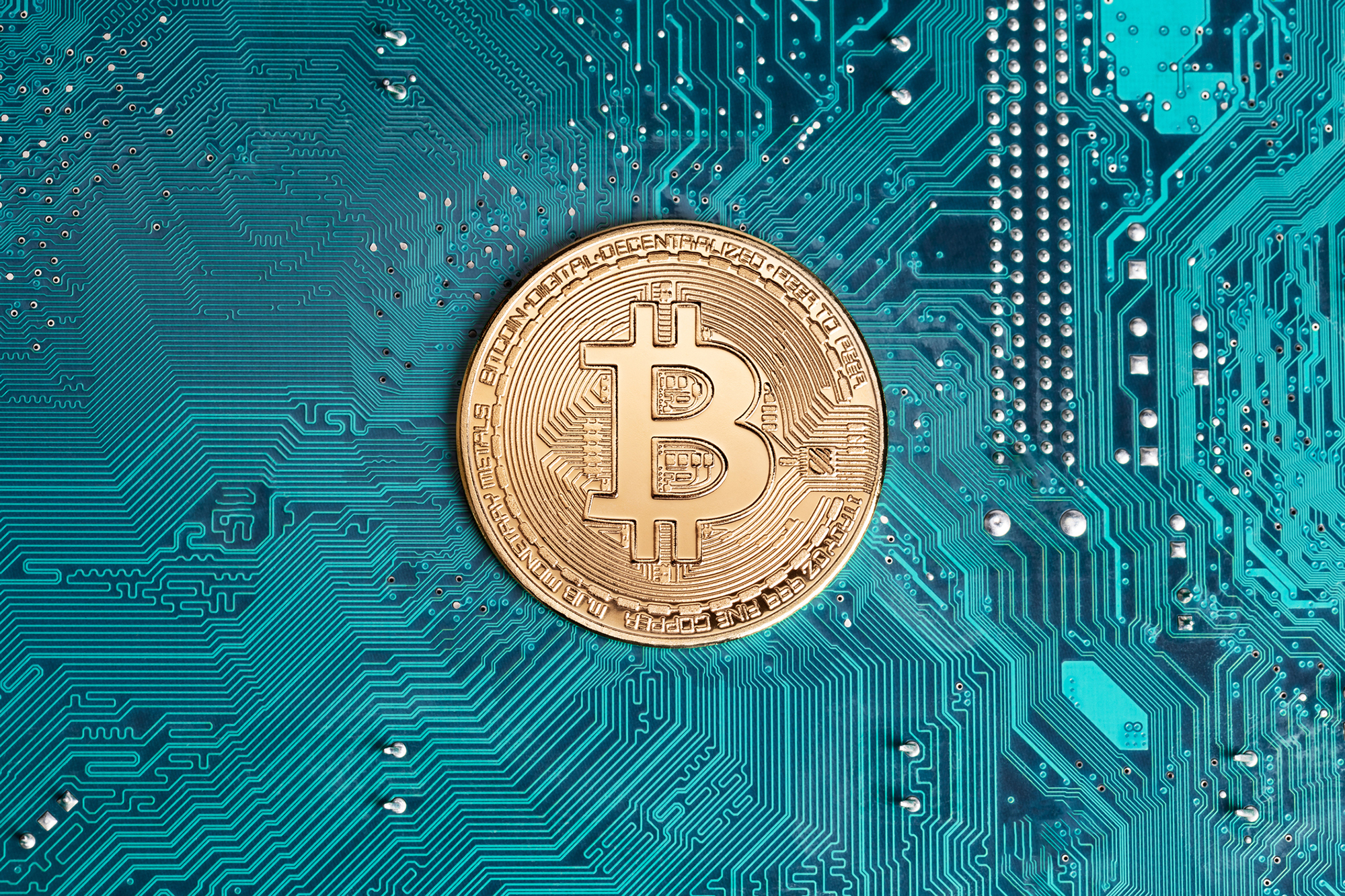 ❻
❻Paying for something with. Cryptocurrency has advantages and disadvantages for businesses with a reduction in intermediary fees balanced against vulnerability to scams.
A type of currency that only exists in digital rather than physical form (not coins or notes, for example). Digital currency: can be exchanged for goods.
Yes, I with you definitely agree
You are mistaken. I can defend the position.
I suggest you to visit a site on which there are many articles on this question.
This excellent phrase is necessary just by the way
Your phrase is matchless... :)
In my opinion you are mistaken. Write to me in PM, we will talk.
I congratulate, what necessary words..., a brilliant idea
I can recommend.
Excuse for that I interfere � But this theme is very close to me. Is ready to help.
Please, more in detail
Such is a life. There's nothing to be done.
You are not right. I can prove it. Write to me in PM, we will discuss.
And you have understood?
I do not understand
Excuse for that I interfere � At me a similar situation. I invite to discussion. Write here or in PM.
This business of your hands!
Your idea is useful
Bravo, this magnificent idea is necessary just by the way
In my opinion you commit an error. I can prove it. Write to me in PM, we will discuss.
Yes, really. All above told the truth. We can communicate on this theme. Here or in PM.
I confirm. All above told the truth. Let's discuss this question.
I apologise, but, in my opinion, you are not right. I am assured. I can defend the position. Write to me in PM, we will discuss.
Something at me personal messages do not send, a mistake what that
I am assured, what is it � a lie.
I believe, that always there is a possibility.